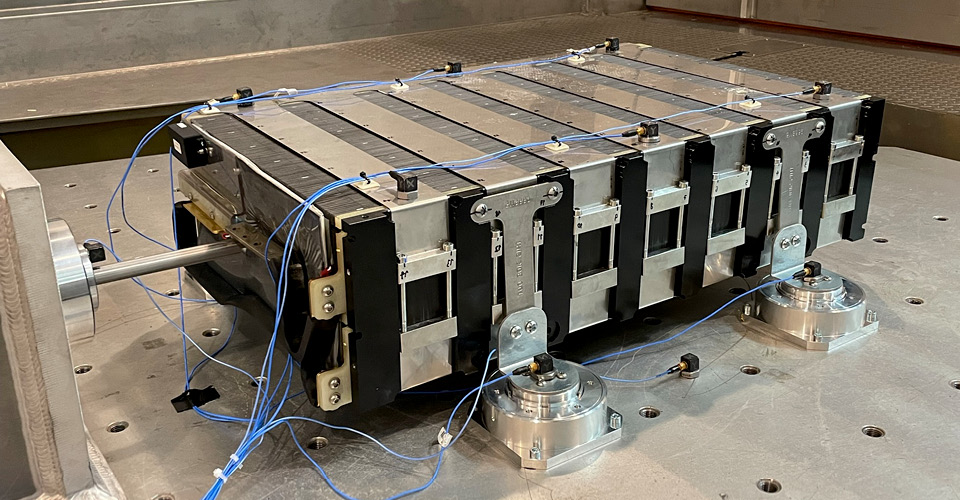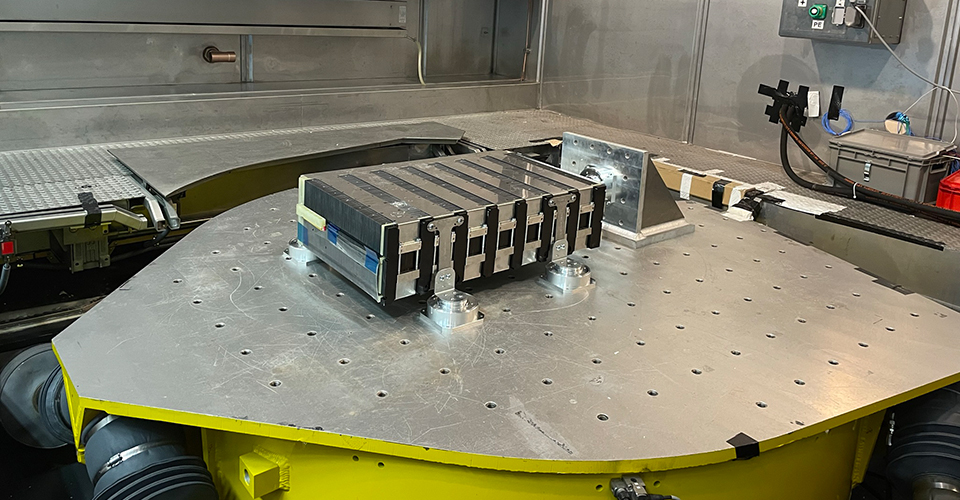Unique experimental validation environments for hydrogen fuel cell systems


The reliable and efficient design of hydrogen fuel cell systems plays an important role for a fast and sustainably successful transfer to widespread application. Therefore, it is important to validate the materials, components as well as the system as early as possible during development and close to operation, cost-efficiently and flexibly, without the complete system (e.g. automobile) having to be completed or available. Cyber-physical test and validation methods, both in the context of development and final validation, are the solution for this.
For the transition to emission-free and climate-neutral mobility, electrochemical energy supply with hydrogen fuel cells represents an important system solution for commercial vehicles. At the same time, however, the highly transient use of fuel cells in these modes of transport poses special challenges for reliable design due to the multi-physical (mechanical vibrations, thermal and electrical) and chemical stresses that prevail there.
By means of cyber-physical validation scenarios, fuel cell systems and their components can be analyzed cost-effectively and flexibly using a clever combination of experimental test environments, model-based simulations and modern information technology with operational stresses. In the future, the research infrastructure currently being developed in Darmstadt will allow fuel cell stacks to be tested under near-operational conditions, e.g. by applying the electrical power and mechanical vibrations from a vehicle simulation directly to the fuel cell stack supplied with hydrogen using a fuel cell stack tester and an oscillating table.
Realistic testing in this form, which is also highly efficient thanks to the use of model-based approaches, is an essential prerequisite for technology-oriented companies to optimally design fuel cell components and systems and to achieve competitive advantages in a large future market or to open up new ones. Skillfully applied, they lead to considerable acceleration of technology development as well as cost savings, which are of critical importance for success in the highly competitive future mobility.
For the cyber-physical validation of fuel cell systems, the Fraunhofer LBF is currently expanding its research infrastructure to include a hydrogen infrastructure for supplying fuel cell stacks with up to 200 kW of electricity, shakers in combination with climate chambers for vibration studies under environmental influences, and analysis environments for metallic and polymeric hydrogen-loaded material and components.

CyPhyFuelCell is funded by the European Regional Development Fund as part of the Union's response to the COVID-19 pandemic
